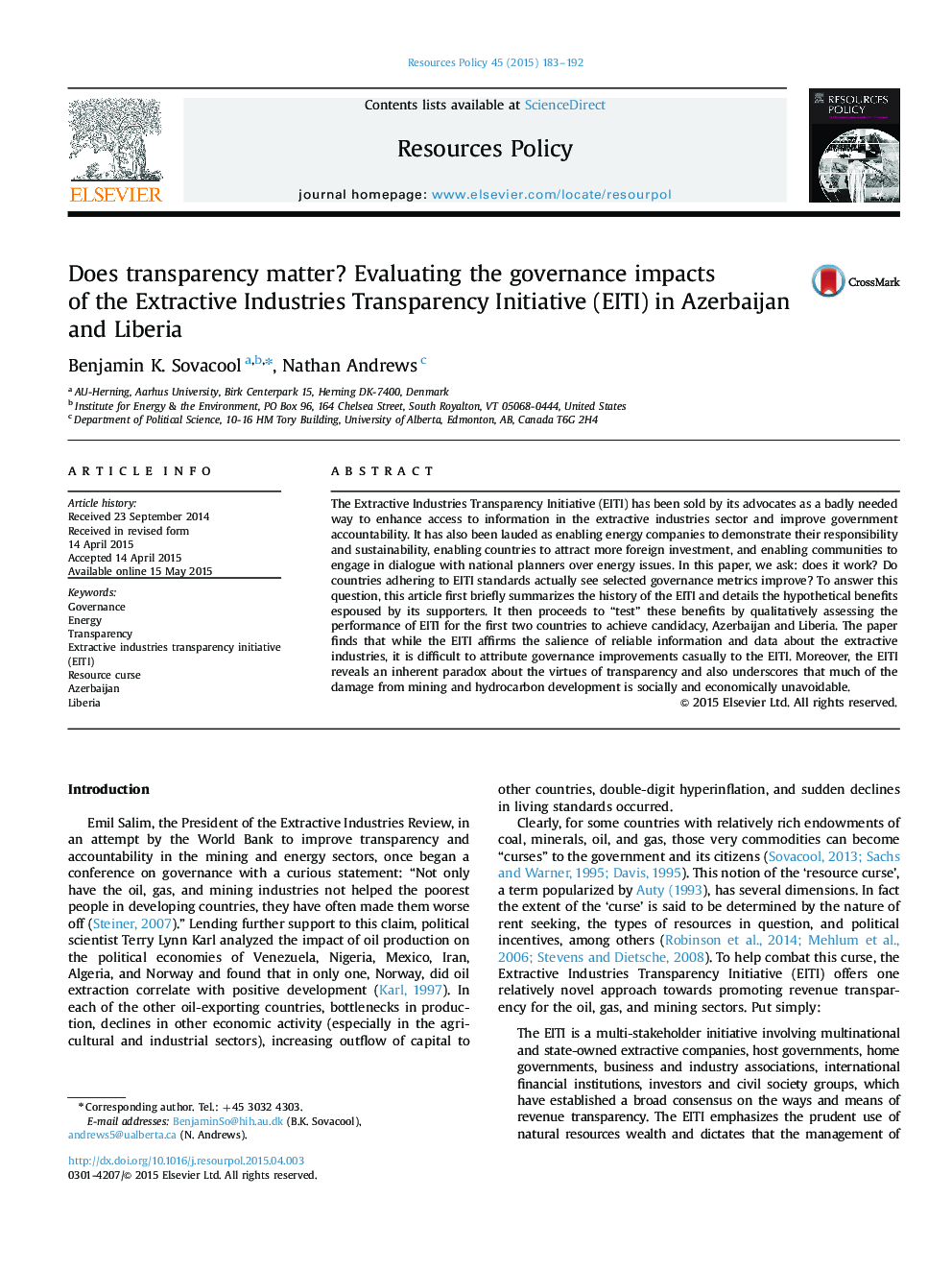| Article ID | Journal | Published Year | Pages | File Type |
|---|---|---|---|---|
| 985900 | Resources Policy | 2015 | 10 Pages |
•The Extractive Industries Transparency Initiative (EITI) has been sold by its advocates as way to enhance access to information and improve government accountability.•This study tests the supposed benefits of the EITI by qualitatively assessing the performance of Azerbaijan and Liberia.•The paper finds that it is difficult to attribute governance improvements casually to the EITI.
The Extractive Industries Transparency Initiative (EITI) has been sold by its advocates as a badly needed way to enhance access to information in the extractive industries sector and improve government accountability. It has also been lauded as enabling energy companies to demonstrate their responsibility and sustainability, enabling countries to attract more foreign investment, and enabling communities to engage in dialogue with national planners over energy issues. In this paper, we ask: does it work? Do countries adhering to EITI standards actually see selected governance metrics improve? To answer this question, this article first briefly summarizes the history of the EITI and details the hypothetical benefits espoused by its supporters. It then proceeds to “test” these benefits by qualitatively assessing the performance of EITI for the first two countries to achieve candidacy, Azerbaijan and Liberia. The paper finds that while the EITI affirms the salience of reliable information and data about the extractive industries, it is difficult to attribute governance improvements casually to the EITI. Moreover, the EITI reveals an inherent paradox about the virtues of transparency and also underscores that much of the damage from mining and hydrocarbon development is socially and economically unavoidable.
